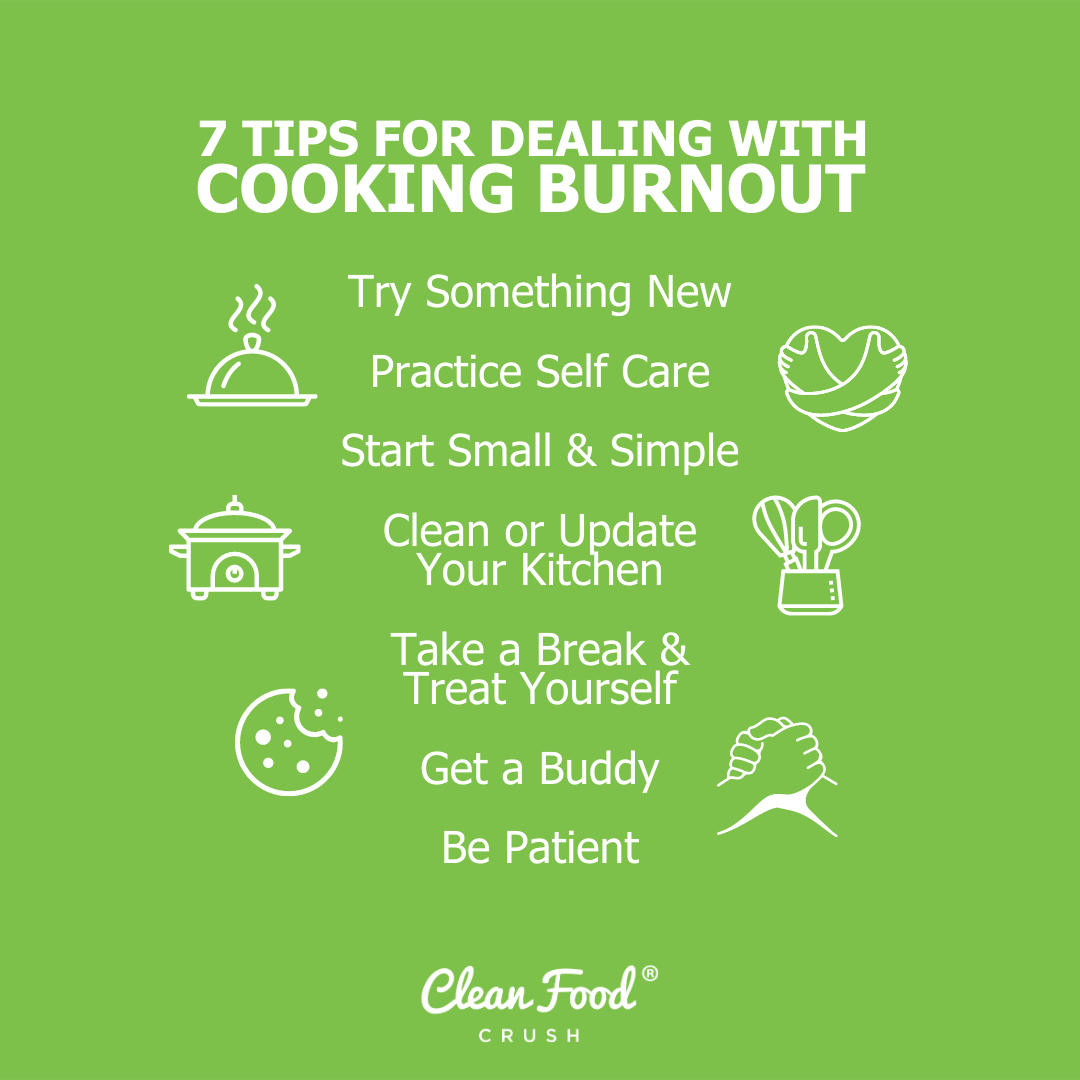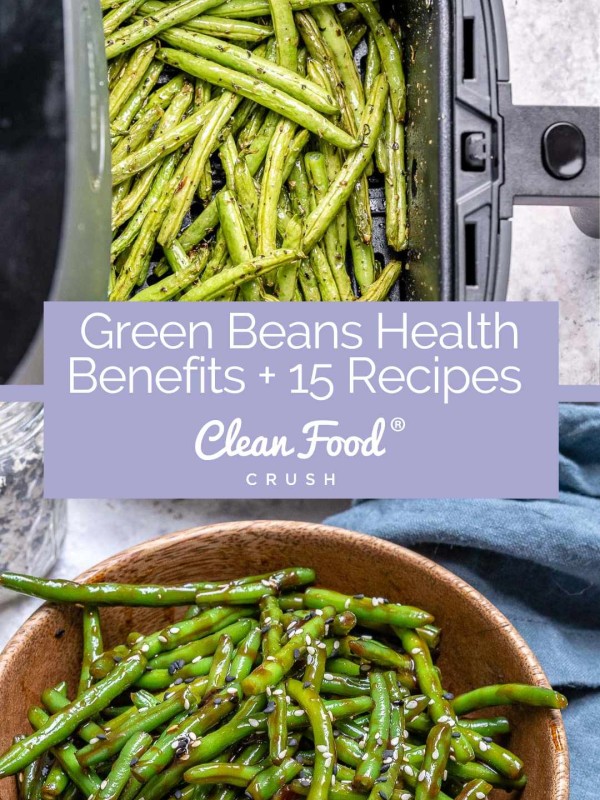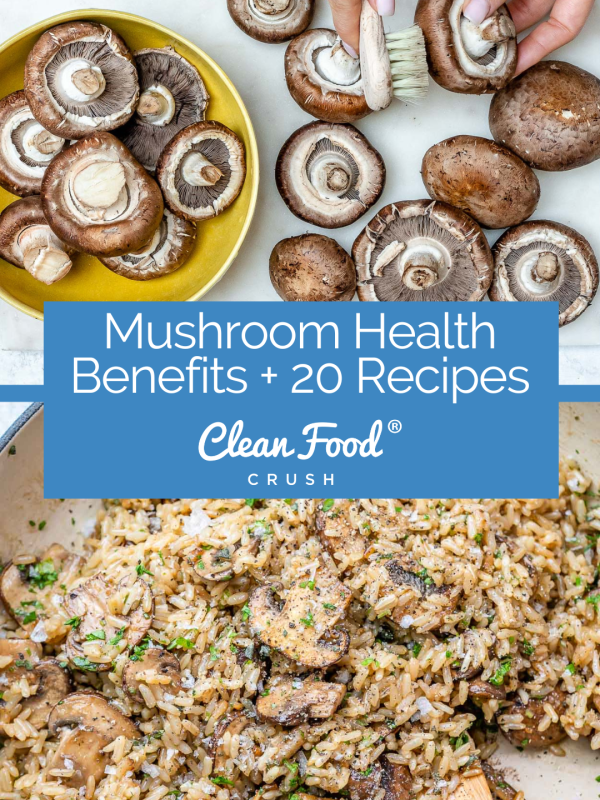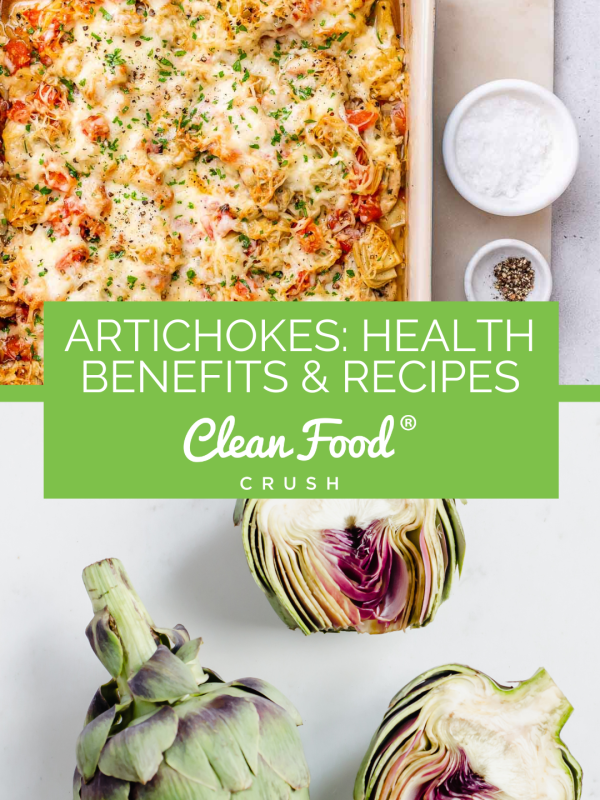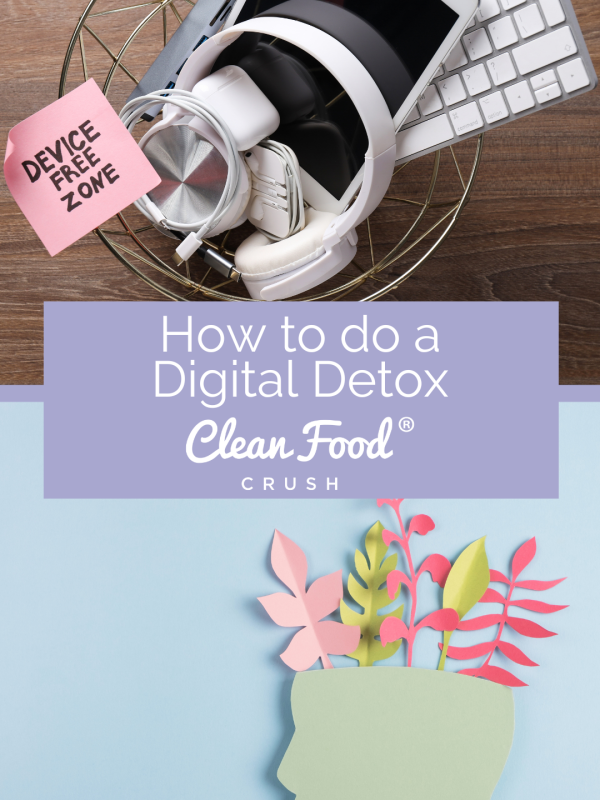This post contains affiliate links. Please see our disclosure policy.
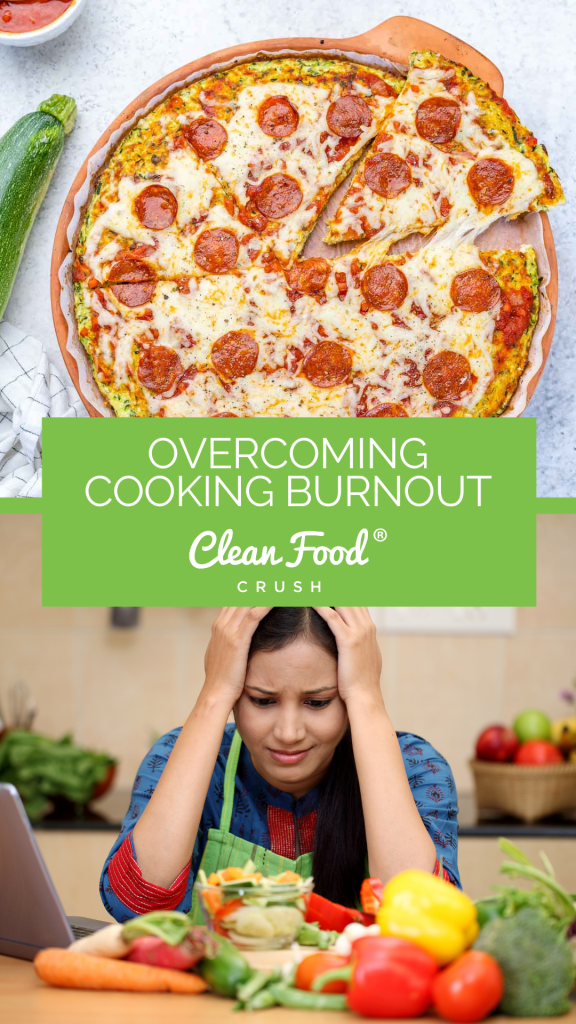
Understand and Overcome Cooking Burnout With These 7 Tips
If you’ve ever felt like excessive, uninterrupted stress has made simple tasks like doing laundry or cooking dinner seem impossible, then you’re not alone! Many people refer to this feeling of complete exhaustion, apathy, or helplessness as burnout, which can apply to any aspect of life. While burnout is most often used to describe a state of feeling drained due to work, it’s possible to experience other types of burnout, such as “Cooking Burnout,” which is sometimes referred to as “Kitchen Burnout” or “Food Burnout.”
The demand for new ideas that taste good and provide essential nutrients, buy ingredients, cook meals, and plan weekly menus can feel constant and unattainable. Since we have to eat several meals every day, the lack of reprieve from work, stress, and decision-making can increase burnout and lower any motivation you may have had. But you don’t have to feel this forever!
While either being on the road to or in the midst of burnout can feel hopeless, there are ways to find balance, positivity, and creativity again. Keep reading for more information on and tips for dealing with burnout!
Signs and Symptoms of Burnout
There are several ways to recognize the oncoming threat of burnout. Here are just a few examples of future burnout indicators:
- Every day feels like a bad day.
- Feeling exhausted and drained all the time.
- The majority of daily tasks feel incredibly dull or overwhelming.
- A shorter temper or emotional bandwidth.
- Your self-esteem is lower than usual, or you feel unappreciated, defeated, or alone.
- Feeling physically ill (like having headaches or frequent illnesses).
- Needing more sleep or getting poor quality sleep.
- Loss of motivation and/or a more cynical outlook.
- Withdrawing, isolating, or procrastinating.
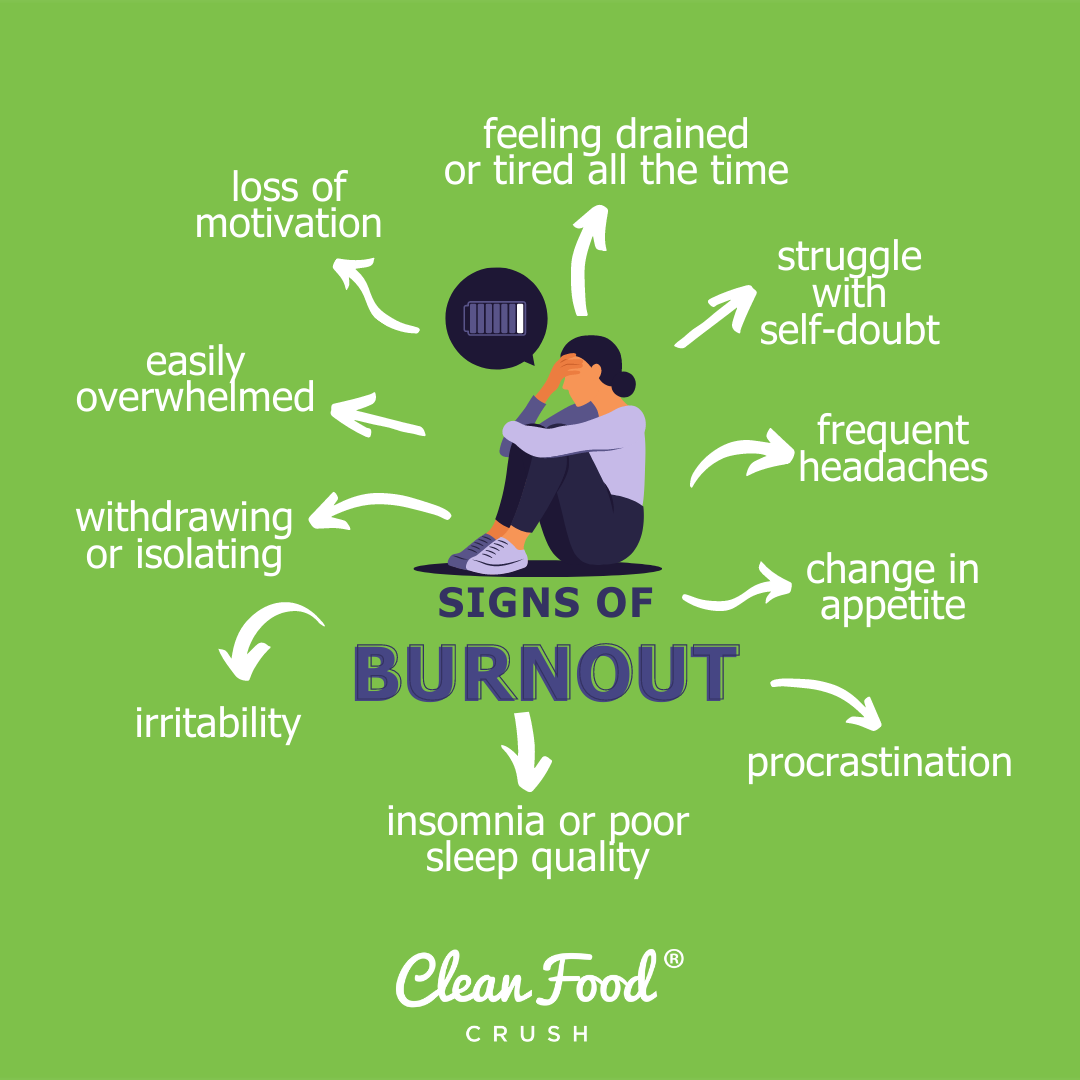
In addition to those generic burnout signs, here are some more symptoms Specific to Cooking Burnout:
- Coming up with ideas for meals is nearly impossible.
- Cooking, grocery shopping, or meal planning causes harsh negative reactions.
- You’re eating out more.
- You settle for less-than-healthy snacks and meals because they’re easier.
- Your appetite is gone.
Everyone is different, and therefore, signs and symptoms of burnout will vary amongst individuals. You know yourself best, so if you feel like there’s something wrong or you’ve lost interest in cooking, you might be burning or already burnt out.
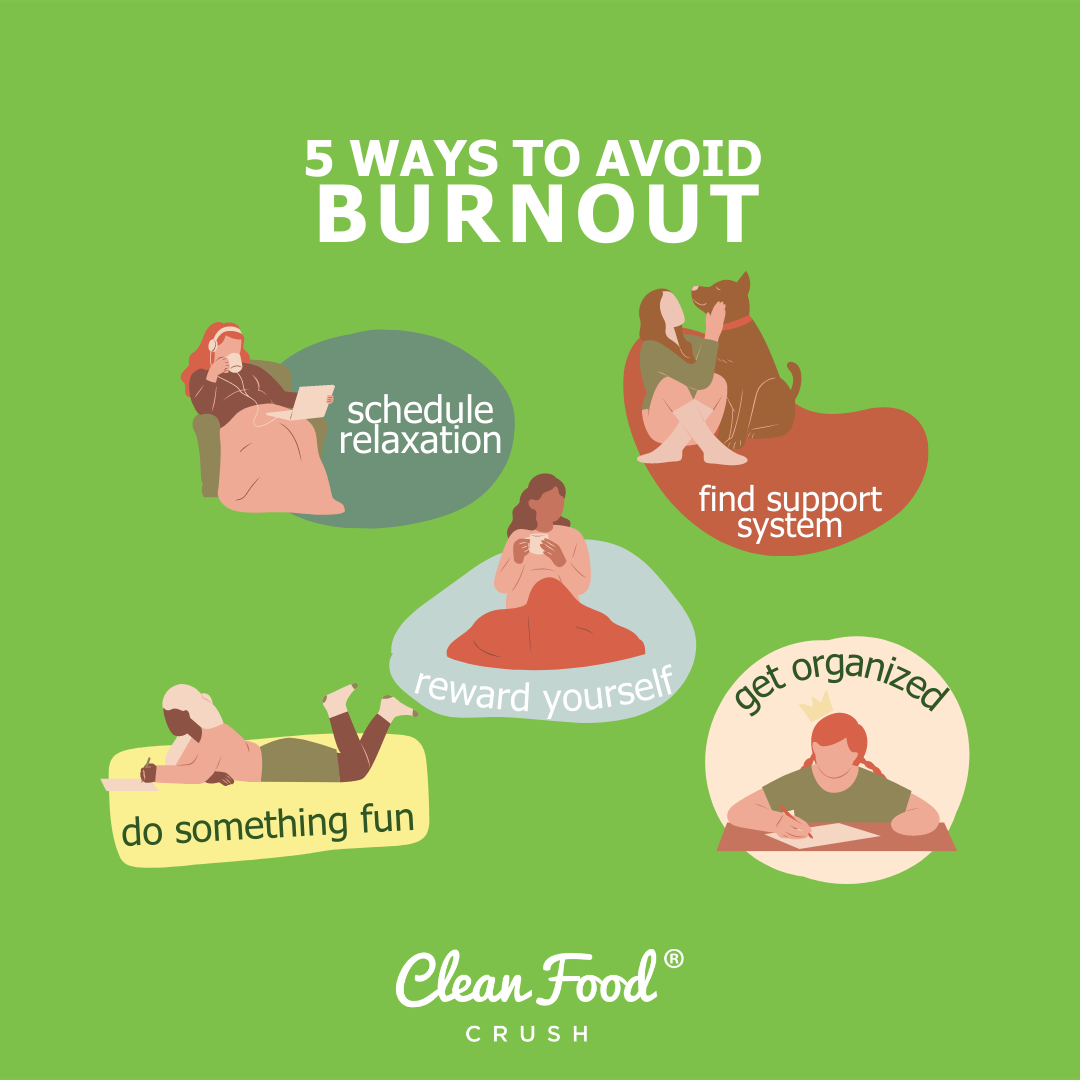
Potential Other Causes
Feeling drained, tired, or upset doesn’t automatically mean you’re burned out. Several other causes could be your decreased motivation and increased unhealthy eating.
Stress
Stress is a major cause of burnout, but not all stress is the same thing as burnout. Often, we feel stressed due to current circumstances, but there is a foreseeable end and more hope for getting things under control and feeling better. With stress, you might feel like you’re drowning in responsibilities, but hopefully, there is a light at the end. Burnout, however, can be more subtle, and you might not know it’s happening until you’re stuck with a strong sense of apathy that takes away your energy and motivation.
Hormone Change
Several things can cause hormonal changes, but some of the most common causes are naturally occurring parts of life such as menstruation, puberty, menopause, or pregnancy. However, several other causes of hormonal imbalances exist, such as stress, certain medications, etc. If you think your hormones are changing and causing issues, contact your doctor.
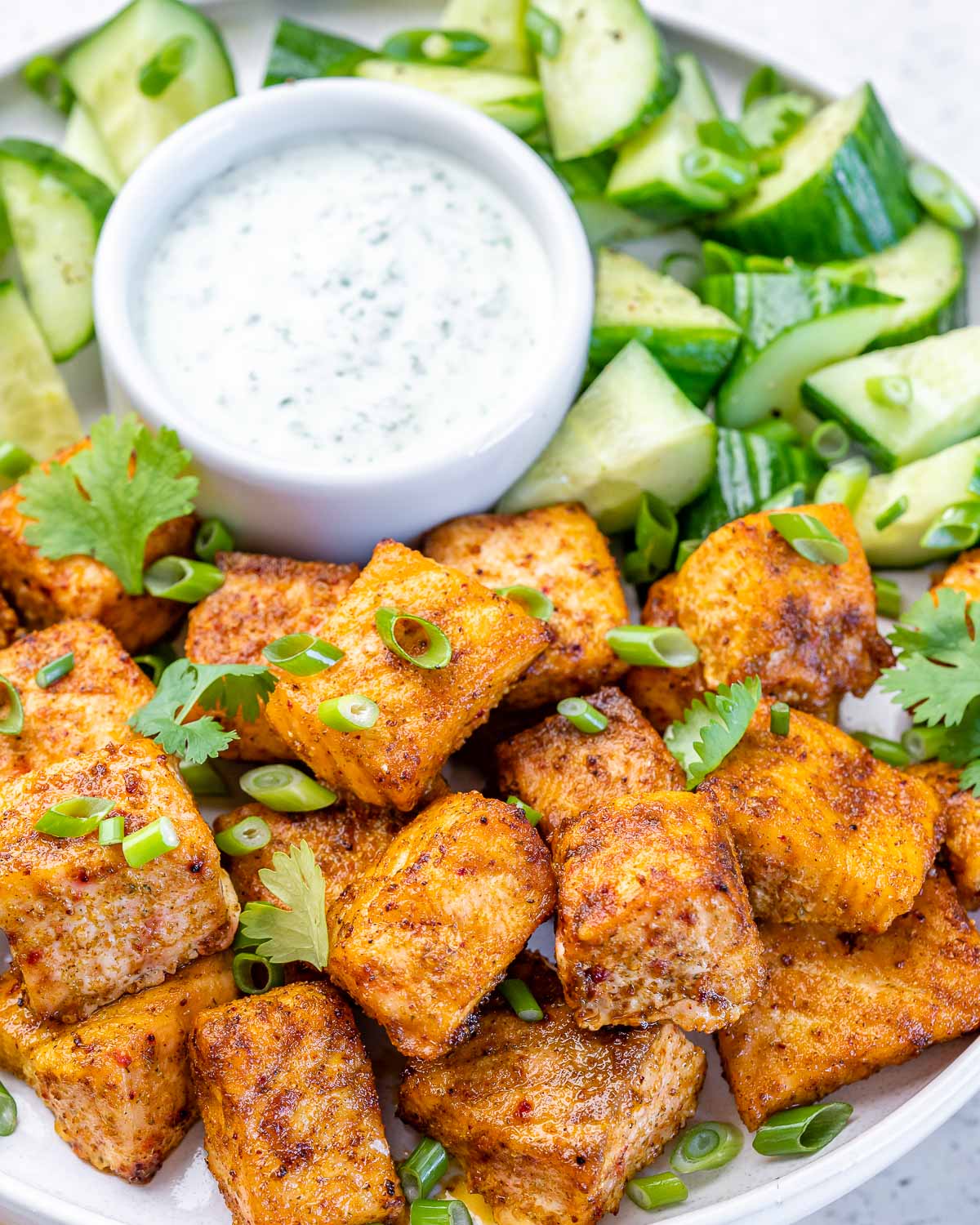 Did you know that fatty fish like salmon are good for improving mood? Add the AMAZING taste of these Roasted Salmon Bites with Cilantro Yogurt Sauce and you have a blues-busting flavor party happening in your mouth!
Did you know that fatty fish like salmon are good for improving mood? Add the AMAZING taste of these Roasted Salmon Bites with Cilantro Yogurt Sauce and you have a blues-busting flavor party happening in your mouth!
Imbalance in Other Aspects of Life
Every part of life impacts each other. So, your diet and eating habits will likely be affected if you’re not getting enough exercise or social interaction.
Similarly, a lack of quality sleep will massively impact your energy, mental health, physical health, and more. More often than not, all you need is a good night’s sleep.
Mental Illness
Most signs and symptoms of burnout can also be symptoms of different mental health issues. Depression and anxiety can cause a lack of interest in things you used to enjoy, restlessness and fear, weight and sleep changes, fatigue, negative emotions, and more. Plenty of other illnesses or aspects of mental health can cause any of the signs and symptoms I’ve listed, and if you think you may be struggling with your mental health, reach out to your primary healthcare provider.
With that out of the way, if you are or think you are dealing with cooking burnout, try one of the following suggestions:
7 Tips for Dealing with Burnout
➡️ Try Something New
I know, one of the main causes of cooking burnout is the constant demand to try new recipes. But rather than focusing on the stress of creating variety, allow yourself the freedom to try something you’ve always wanted to, a friend’s favorite meal, or a random recipe from your favorite clean-eating blog.
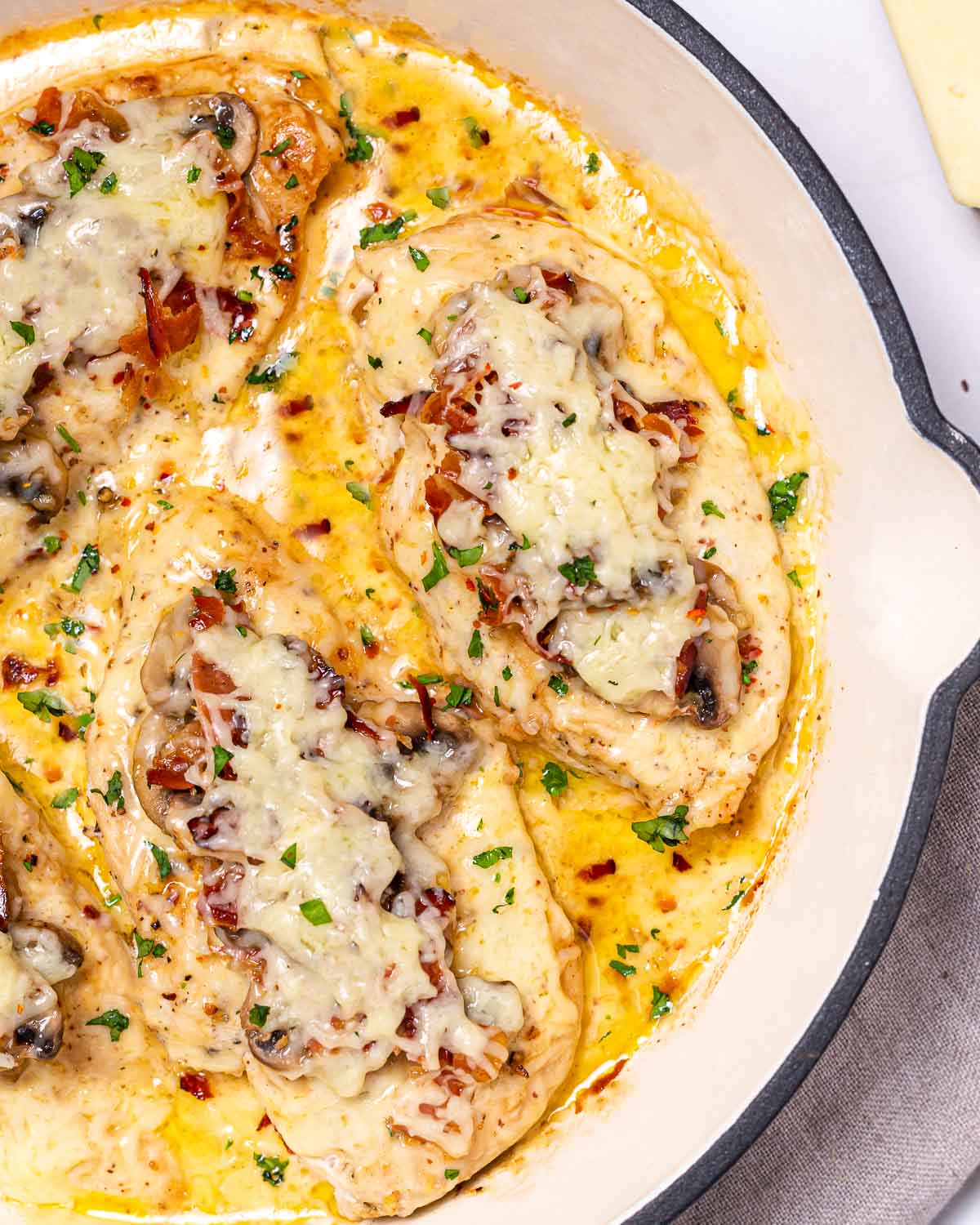 Have you tried our Alice Springs Copycat Chicken? YUM!
Have you tried our Alice Springs Copycat Chicken? YUM!
➡️ Care for Your Mental Health
Don’t forget that caring for your mental health is an essential part of healthy living. Take time for yourself to decompress, practice self-care, work on getting better sleep, enjoy some sunshine, move your body, read a book, or do something that makes you happy. Burnout is caused by stress, so do your best to alleviate any anxiety. Check out this post for ways to boost mental health.
➡️ Start Small and Simple
Don’t force yourself to try five new recipes or prep every meal for the week. Instead, try one new recipe a week, and for the rest of the time, stick to what you know and what is already comfortable. When trying new things, avoid the elaborate and try simple, quick recipes like one-sheet pans and crock pot meals.
When planning, start with your dinners, and don’t think about lunches, breakfasts, or snacks. Once you feel ready, think about those other meals, but having your last meal of the day already decided will alleviate some of the decision-making stress.
Also, simplify grocery shopping. Don’t be too ambitious and buy dozens of perishable items. Be realistic with what you’re going to cook and eat. If you don’t have time, try using grocery store apps to decide what you’ll get ahead and pick up groceries. You can also do delivery.
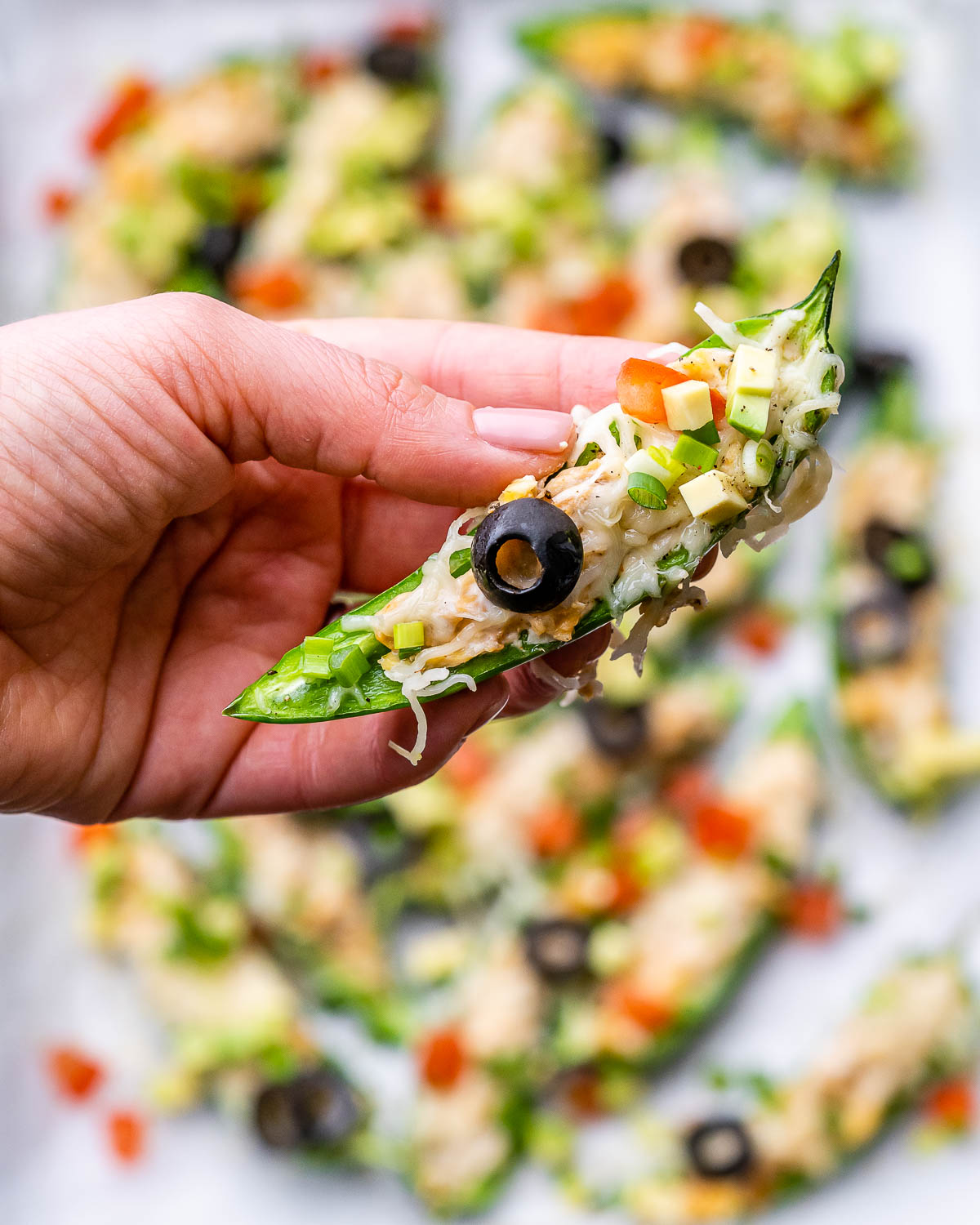 These Pimientos de Padrón Pepper “Nachos” are in our Quick-Easy category and are SO TASTY!
These Pimientos de Padrón Pepper “Nachos” are in our Quick-Easy category and are SO TASTY!
➡️ Clean or Update Your Kitchen
Don’t underestimate the power of having a clean, organized kitchen. A cluttered and messy space causes more stress, and clearing everything up will help you feel lighter and re-energized.
If you can, try gifting yourself a new appliance. You don’t have to update your entire kitchen, but if you’ve always wanted to try an air fryer meal, treat yourself to an air fryer! Or, maybe you want a new cutlery set that comes with much higher quality knives. You don’t have to buy something huge or expensive. It can be as small as new decorative towels or fancy salt and pepper shakers.
Cleaning and updating your kitchen can be fresh and inviting. It can also improve your motivation to cook and use your new appliances.
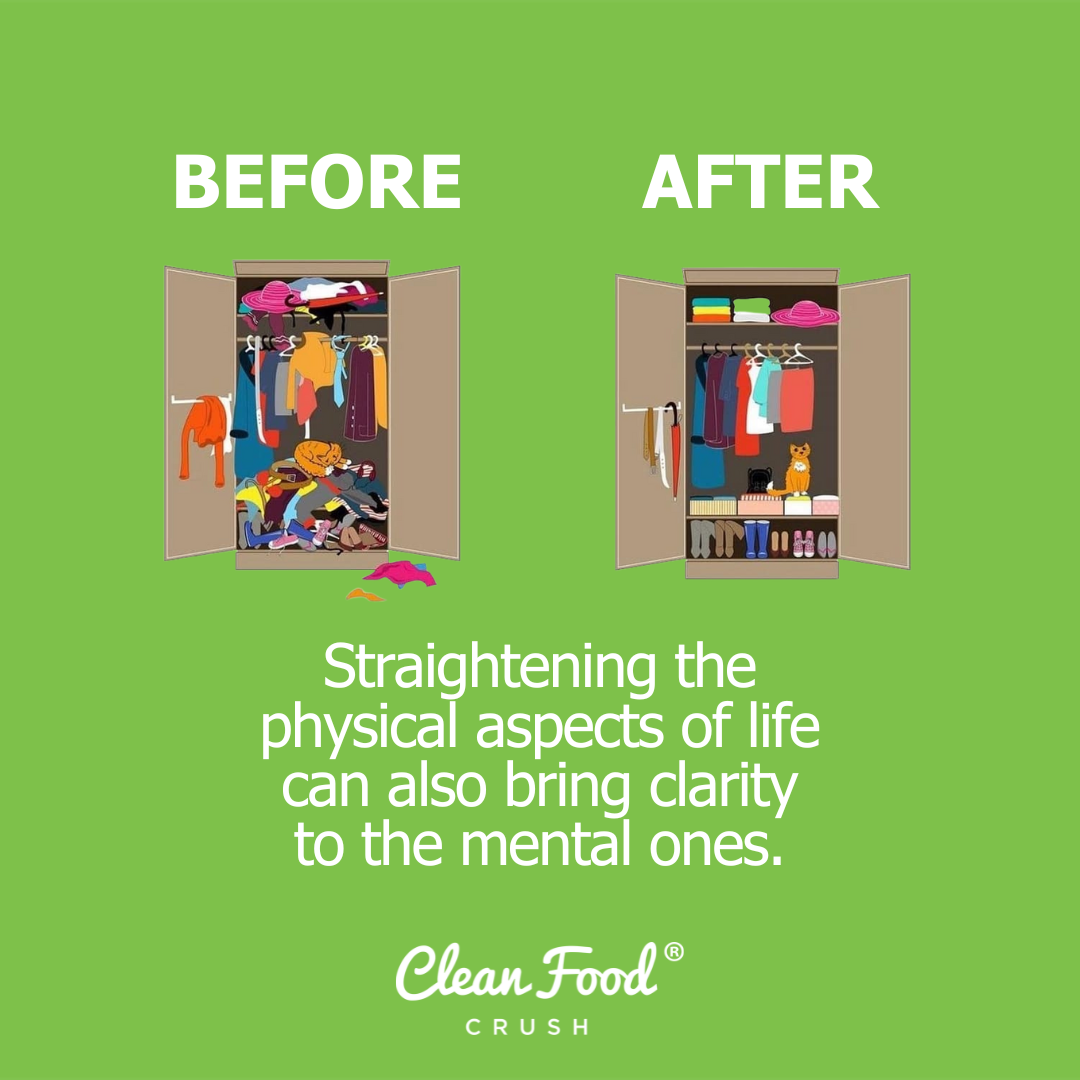
➡️ Break and Treat Yourself
Sometimes, all you need is rest and a break. If nothing else is working and you can’t get yourself to cook, that’s okay.
I don’t mean to eat pizza for every meal daily but utilize moderation for an occasional treat. You can even take a week off of cooking. Make one or two prepped meals (like a large pot of soup), buy healthy snacks and frozen meals, choose the most nutritious take-out meals, eat simple foods like sandwiches, and let someone else cook for you.
Allow yourself to take a break from cooking and meal prepping and struggling to be creative and healthy. Instead, enjoy your favorite meal or food that sparks joy. Allow one night where you order takeout or treat yourself to a decadent dessert after dinner. But be sure not to berate yourself for resting. One day isn’t going to erase all the hard work you’ve put into your health.
 Mmmmmm. Chocolate Fondue. Healthy AND Comforting? Yes please!
Mmmmmm. Chocolate Fondue. Healthy AND Comforting? Yes please!
➡️ Get a Buddy
Doing anything completely alone is difficult and isolating. Have your kids join you when making snacks or invite friends over to have a cooking party. Share cooking responsibilities with your partner or roommates. Exchange favorite meals and recipes.
The built-in support system is one of the key components of our 30-Day Challenge that makes it work. When you join, you get access to a private group with other members and our CFC coaches, where you’ll find ideas, accountability, coaching, encouragement, and more. Read more here.
➡️ Be Patient
Don’t beat yourself up if the burnout doesn’t immediately disappear, and be realistic with the process. Having goals is great, and knowing what you want to do in the kitchen each week is wonderful, but you don’t have to cook every single day and have fancy meals every time you eat.
Utilize leftovers, and don’t feel defeated if you have the occasional takeout. Take it one step at a time and remind yourself that this is meant to be a manageable, enjoyable lifestyle.
Cooking Burnout can be an intimidating beast to tackle, but it’s not forever, and you can do it!
Don’t be afraid to ask for help and take the necessary time to deal with burnout.
Trying any of the above tips should help you get past burnout, and feel free to share your tips and tricks in the comments below. Before you know it, your love for cooking will be back and stronger than ever!
Keep up the excellent work, CRUSHers!
